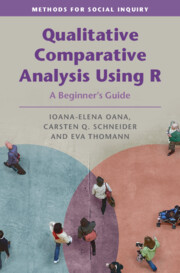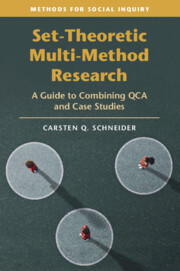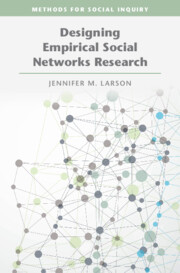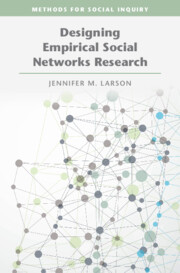Qualitative Comparative Analysis Using R
A comprehensive introduction and teaching resource for state-of-the-art Qualitative Comparative Analysis (QCA) using R software. This guide facilitates the efficient teaching, independent learning, and use of QCA with the best available software, reducing the time and effort required when encountering not just the logic of a new method, but also new software. With its applied and practical focus, the book offers a genuinely simple and intuitive resource for implementing the most complete protocol of QCA. To make the lives of students, teachers, researchers, and practitioners as easy as possible, the book includes learning goals, core points, empirical examples, and tips for good practices. The freely available online material provides a rich body of additional resources to aid users in their learning process. Beyond performing core analyses with the R package QCA, the book also facilitates a close integration with the R package SetMethods allowing for a host of additional protocols for building a more solid and well-rounded QCA.
- Introduces both basic and advanced features of state-of-the-art QCA and their implementation in the most advanced software environment
- Integrates conceptual and empirical examples and datasets from a wide range of social science disciplines
- Provides a rich body of freely available additional online resources including scripts, datasets, templates, test questions and exercises with solutions, and a basic introduction to R
- Is tightly connected to the functionalities of R packages QCA and SetMethods
Reviews & endorsements
'In a relatively short, clear, and well-written textbook, the authors cover all the essentials of QCA. It includes all the current practices and developments that one needs to do a complete QCA analysis. I am using it in my QCA class and I think the students will like it.' Gary Goertz, Kroc Institute for International Peace Studies, University of Notre Dame
'This book is simply a must for anyone aiming at exploiting ‘hands on' the distinctive analytic leverage of QCA, via the vast possibilities of the R environment.' Benoît Rihoux, University of Louvain and COMPASSS global network (compasss.org)
'Every now and then, a book comes along of which you think 'why wasn't this around when I was learning this stuff?'. Because sometimes, you just want to learn from the best. The authors have written an excellent guide for both first-time users and experienced QCA scholars: robust, powerful, and a must-read.' Bart Cambré, Antwerp Management School
'Easily accessible and loaded with a wealth of examples, this important book by Oana, Schneider, and Thomann provides an expert guide to the set-analytic perspective. The integration of concepts and research strategies with the R software package makes their approach particularly successful. I expect it will quickly become the standard introduction to QCA.' Peer C. Fiss, University of Southern California
'Social scientists interested in QCA should not miss this book. Oana, Schneider, and Thomann offer an introduction to QCA that is friendly, up to date, and technically advanced. The volume covers set relations, calibration of 'crisp' and 'fuzzy' sets, necessary conditions, sufficient configurations, temporality, advanced diagnostics, and post-QCA tools. Each chapter contains intuitive examples, advanced tips, and detailed implementation instructions in R.' Aníbal Pérez-Liñán, University of Notre Dame
Product details
October 2021Adobe eBook Reader
9781009008303
0 pages
63 b/w illus. 26 tables
This ISBN is for an eBook version which is distributed on our behalf by a third party.
Table of Contents
- Part I. Getting started: Introduction: QCA in a nutshell
- Part II. Before the analytic moment:
- 2. Calibrating and combining sets
- Part III. During the analytic moment:
- 3. Necessary conditions
- 4. Sufficient conditions
- Part IV. After the analytic moment:
- 5. Rounding up solid a QCA
- 6. Post-QCA tools
- 7. Summary and outlook.








